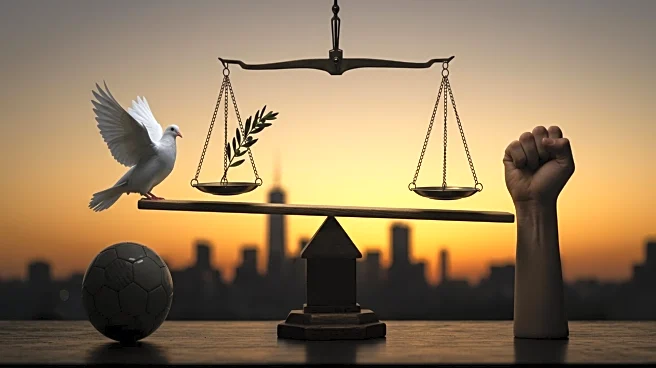What's Happening?
The UK government has intensified its crackdown on pro-Palestinian protestors by arresting hundreds of individuals at weekly rallies, following the designation of a protest group as a terrorist organization. This move has sparked criticism from various quarters, with concerns that it poses a threat to free speech. The arrests are part of a broader effort to enforce the ban on Palestine Action, which was proscribed due to alleged security threats. Despite the arrests, demonstrators continue to gather, undeterred by the legal risks. The situation has drawn attention to the balance between national security and civil liberties in the UK.
Why It's Important?
The arrests of pro-Palestinian protestors have significant implications for civil liberties, particularly the right to free speech and assembly. Critics argue that the government's actions may suppress legitimate dissent and protest, raising questions about the extent of governmental power in curbing civil rights. The designation of protest groups as terrorist organizations can have a chilling effect on activism, potentially deterring individuals from participating in demonstrations. This development is crucial for understanding the evolving landscape of protest rights and government authority in the UK, with potential ramifications for similar movements globally.
What's Next?
The ongoing arrests and legal proceedings against protestors are likely to continue, with the UK government maintaining its stance on national security. However, the legal challenge against the proscription of Palestine Action may lead to a reassessment of the ban, depending on the court's ruling. The outcome of this challenge could influence future government policies on protest groups and civil liberties. Additionally, human rights organizations may increase their advocacy efforts to protect free speech and protest rights, potentially leading to broader public debates on these issues.










